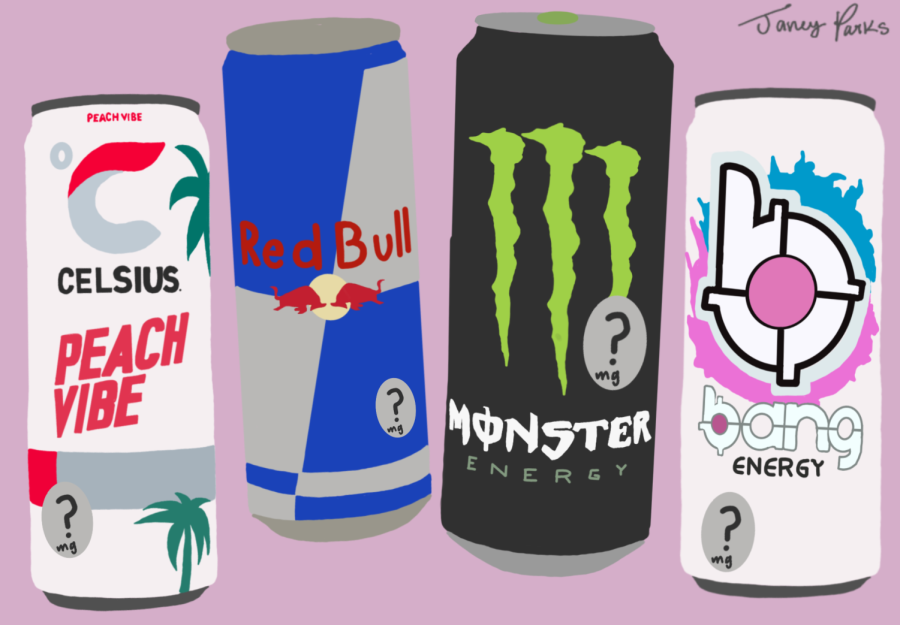The caffeine chokehold
People become more caffeine reliant in day-to-day life
Although death from consuming too much caffeine is rare, it is not impossible. Consuming an abundance of caffeine can lead to something called “caffeine toxicity”, side effects can include; racing heart, sweating, seizures, vomiting, muscle tremors and possibly respiratory collapse.
On a typical day, many people wake up, check their phones, go brush their teeth and head into the kitchen to grab a mug. This mug may be filled with creamer, followed by piping hot coffee up to the brim. Some may even help themselves to two or three cups of coffee in the morning before their day even gets started. Of course, they also may have to grab an iced coffee later on and then follow up with an energy drink some hours after, but has anyone really stopped to think about how much caffeine they take in every day? Just how reliant are people on this substance?
“Over nine in ten (93%) Americans report consuming caffeine. Three in four (75%) caffeine consumers have caffeine at least once a day, and one in four (25%) consume it three or more times a day,” foodinsight.org said.
Almost all Americans drink caffeine. 75% of all Americans drink it at least once nearly every day, but can you really blame them? Drinking caffeine is an easy way to get a burst of that rare energy everyone wants, but can not seem to achieve naturally.
Have a 12-hour shift and you didn’t sleep well last night? Go sip on a Red Bull; we’ve all seen the commercials and know by now that it’ll give you wings. Have a big Calculus lecture you need to stay awake in? Make sure you are stocked up on Bang energy drinks, and if you are picky, don’t worry because there are over 40 flavors to choose from. Many cope with caffeine to fill the void of constantly feeling tired and drowsy because it is an easy fix. Although easy, it is short-term, and the more caffeine you drink the more addicted and reliant you become.
Aside from solely drinking cans of sodas and energy drinks that are heavily caffeinated, many also consume pre-workout before hitting the gym. That itchy and tingling feeling some have mostly comes from the high dosage of caffeine going straight into your body. These doses can be around 100-300 milligrams of caffeine depending on the brand.
Some people become caffeine reliant when they do not even intend to; in some cases, brands mislabel or hide the amount of caffeine in a certain drink and people consume it without realizing there are 400 milligrams of caffeine in it. To put that into perspective, the American Dietetic Association suggests no more than 200-300 milligrams of caffeine a day, which is no more than two or three cups of coffee per day. To have one cup of the infamously mislabeled Panera Charged Lemonade, you are taking in 390 milligrams of caffeine, which is almost 200 milligrams over the suggested amount in just one drink.
Along with that, there is a chance you may become prone to heart issues. People may not find heart issues from just drinking sugary and unhealthy drinks alone, but because these highly caffeinated drinks increase heart rate to shocking levels. While caffeine addiction can be detrimental, if you are someone with pre-existing heart conditions and drink up on something that has very high levels of caffeine, it can be troubling to your health.
We all have at least one caffeine go-to when we need that quick little pick-me-up or when we are feeling sleepy. Whether they have 400 milligrams of caffeine in it or 50, these drinks can still become an addictive substance that is sometimes mislabeled. Just keep in mind what you actually may be consuming can be more than meets the eye.



